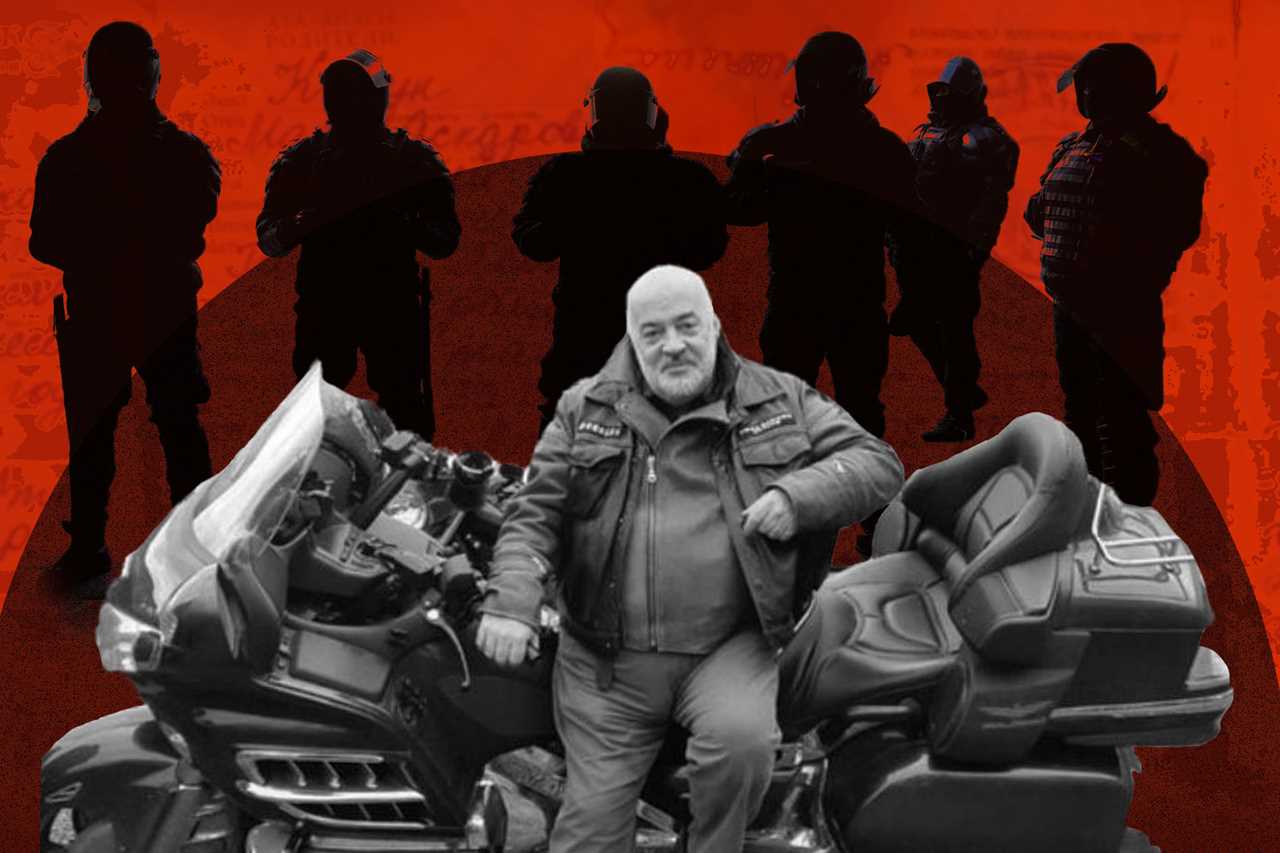
On the morning of April 18, several members of Russia’s security forces, clothed in camouflage and brandishing tactical shields, burst into a spare, one-bedroom apartment in Astrakhan, a historic city on the banks of the Volga River in southern Russia.
Video footage of the raid showed the officers violently apprehending their target — forcing him into a corner of the room, pressing his face against the wall and restraining his hands behind his back as he cried out in pain. After a night of isolation in a local jail, police guards loaded him onto a plane bound for Moscow, where he was formally accused of helping finance a Russian-branded extremist organization in Ukraine with the motivation of racial “superiority” and “racist hatred.”
It was a swift show of force — and a confusing indictment — considering the suspect: Mikhail Kavun, a 61-year-old geologist, motorcycle enthusiast and father of two with Ukrainian-Jewish heritage.
“Obviously, this is being used as some kind of a propaganda,” said Joshua Castellino, executive director of the London-based Minority Rights Group International, referring to the charges against Kavun and related accusations by Russian President Vladimir Putin’s government.
At the very beginning of Russia’s invasion of Ukraine in February, Putin rationalized what he called a “special military operation” as designed to bring about the “demilitarization and de-Nazification” of the country. That outlandish justification was not only at odds with Ukrainian President Volodymyr Zelenskyy’s own Jewish heritage, but also with Ukraine’s status as the fourth-largest Jewish community in Europe and the 11-largest in the world, according to the World Jewish Congress.
As recently as this month, Russian Foreign Minister Sergey Lavrov defended the Kremlin’s lies about Ukrainian Nazism and claimed without evidence that even Adolf Hitler “had Jewish blood.” The fact that Zelenskyy is Jewish, Lavrov added, “means absolutely nothing. The wise Jewish people said that the most ardent antisemites are usually Jews.” Those remarks elicited a swift rebuke from Israel, Ukraine and the rest of the international community, and prompted an extraordinary apology from Putin to Israeli Prime Minister Naftali Bennett.
But in his highly anticipated “Victory Day” speech this week, marking the Nazis’ defeat in World War II and delivered at a military parade on Moscow’s Red Square, Putin returned to the same incendiary rhetoric — lamenting that a “clash with neo-Nazis” in Ukraine “was unavoidable.”
“This seems to be a very strong element of an internal message to ordinary Russians, to say that these are forces of evil at play,” Castellino assessed of the Kremlin’s Nazi language. “Unfortunately, the choice of the forces of evil at play that [Putin is] portraying are just ironic.”
In the 11 weeks since the start of Russia’s invasion, Putin has kept up his stream of disinformation about “de-Nazification,” to the detriment of the Kremlin’s broader messaging efforts. When evaluating similar propaganda campaigns throughout history, “usually, what makes it useful is that there is some vague, vague, vague notion that it may be truthful,” Castellino said. “[But] some of the propaganda we are seeing now has absolutely no basis in any kind of fact.”
Perpetuating his myth of a Nazified Ukraine, Putin’s propagandists have repeatedly pointed to Ukrainian nationalist groups that largely rose to prominence after Moscow’s seizure and illegal annexation of Crimea in 2014. The organization perhaps most often mentioned by Russian state media is the Azov Battalion — founded as a volunteer militia and later incorporated into the National Guard of Ukraine — which has attracted a significant number of members with far-right and neo-Nazi sympathies.
Still, Meylakh Sheykhet, the director in Ukraine for the Union of Councils for Soviet Jews, insists that Putin’s claims of a Ukrainian government infiltrated by extremist paramilitary units and neo-Nazi Jews are completely made up. “There is no Ukrainian Nazi,” said Sheykhet, who is currently sheltering in the western city of Lviv. “There is no Jewish Nazi in Ukraine.”
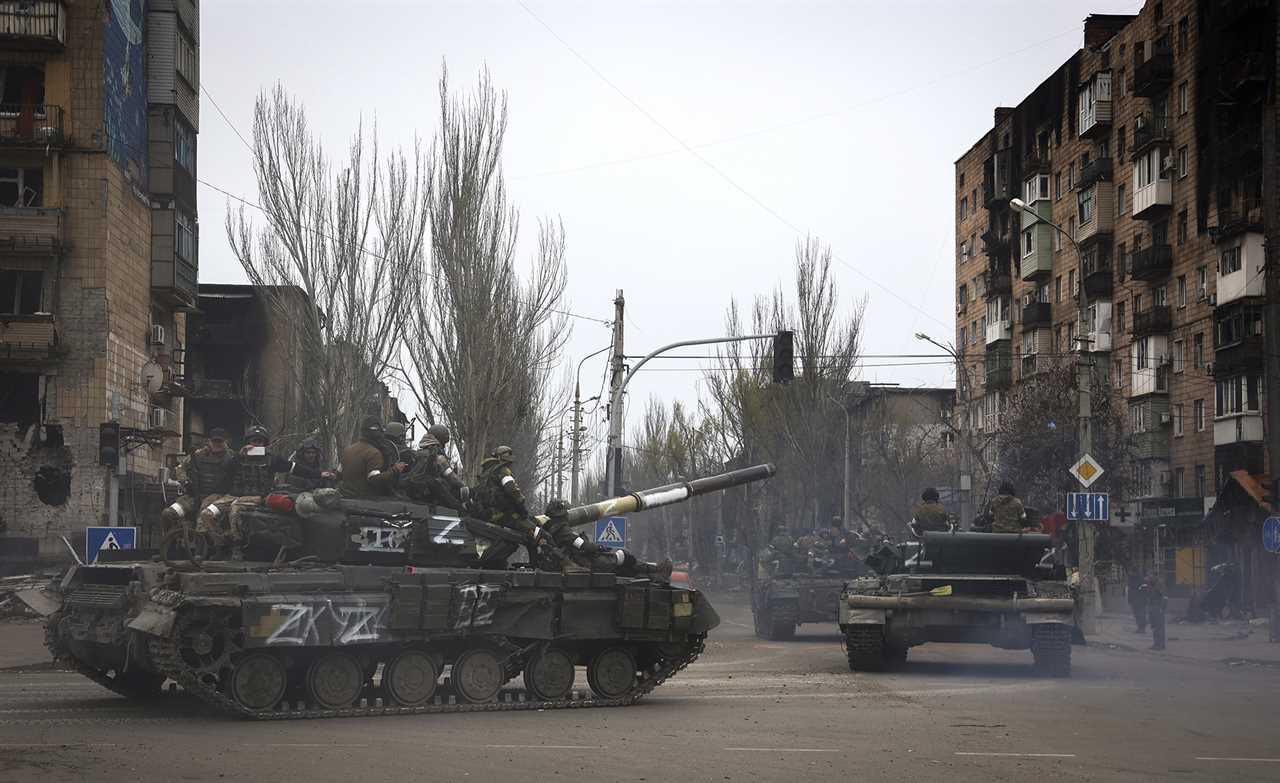
In Moscow last month, Russian authorities charged Kavun with providing more than 100,000 rubles worth of financial support to the far-right, Ukrainian nationalist organization Right Sector from 2015 to 2019. And in subsequent days, Russian news outlets began highlighting a photo posted on social media in July 2015 showing Kavun wearing a T-shirt allegedly bearing the logo of the nationalist movement.
In actuality, the image on Kavun’s shirt is a meme popularly known as “Zhidobandera” — an oxymoronic term suggesting Jewish support for the doctrine of Stepan Bandera, the deeply polarizing Ukrainian nationalist who collaborated with Nazi Germany. The meme is meant to highlight the absurdity of allegations by Putin and others of a Nazi-like Jewish cabal inside Ukraine.
But the Kremlin’s propagandists missed the irony. The Telegram channel “Kremlin Laundress” — which has a history of disseminating Russian disinformation — pointed to Kavun’s shirt as “evidence” of “Nazis in Ukraine” and asserted that native speakers of the Russian language are being victimized in the same way that Jews were in the Holocaust. That conspiratorial post was then shared online by Vladimir Solovyov, the Russian state TV anchor sometimes called “Putin’s voice.”
Despite the Kremlin’s mistruths and baseless claims, Kavun’s attorney Dima Zakhvatov said his client’s case has dangerous implications for Jews in Russia who might be viewed as sympathetic to Ukraine. Moscow’s attempts to fabricate a so-called Zhidobandera movement mean “we’re going to see [more] criminal cases against Jews [who] were visiting Ukraine or have friends [or] relatives over there.”
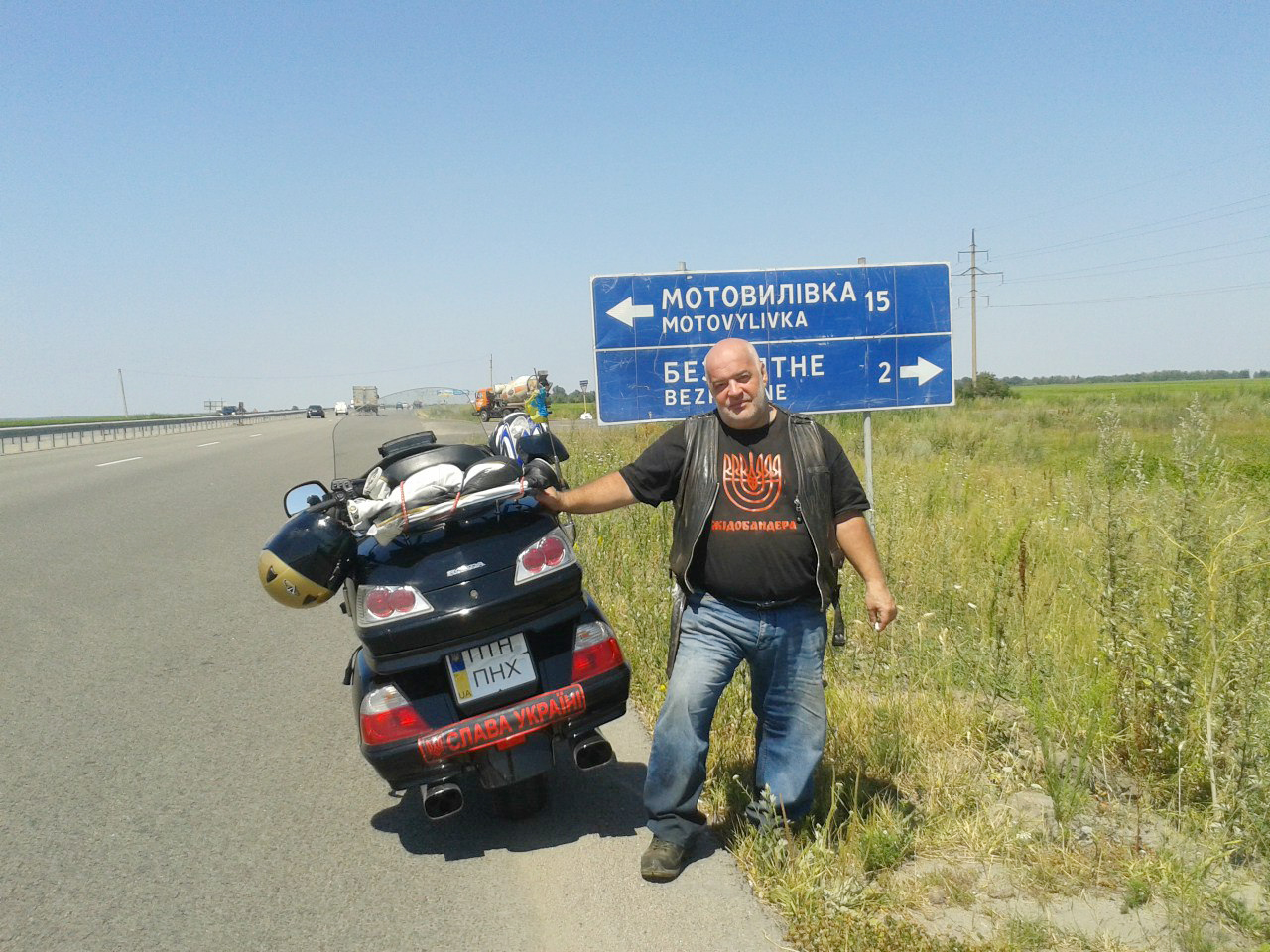
Much of what we know about Mikhail Kavun was provided by his 24-year-old son, Aleksei Kavun, who contacted POLITICO in hopes of raising awareness about his father’s case. According to Aleksei, several aspects of his father’s personal history seemingly contradict the Kremlin’s depiction of him as a nationalistic Ukrainian Nazi with a hatred for native Russian speakers.
Although Mikhail Kavun identifies as culturally Ukrainian — both his mother and Jewish father were born there — he was born in Soviet Kazakhstan and lived outside Moscow throughout his childhood. He attended Moscow State University, obtained his doctorate in geological and mineralogical sciences at the Russian Academy of Sciences, and has a Russian passport.
In 1987, Mikhail Kavun married a native Russian speaker from the western Vladimir Oblast — Aleksei’s mother — and his wife, daughter and granddaughter now share an apartment in Moscow. For most of the past 14 years, Mikhail Kavun has worked throughout Russia as a senior geologist at Schlumberger, the world’s biggest oilfield services company. In two letters dated April 18, Schlumberger confirmed Mikhail Kavun’s employment, and his supervisor praised his work at the company.
In 2020, while working a brief stint in Kyiv for gas production company UNB, Mikhail Kavun was approved for temporary Ukrainian residency. UNB issued a letter, dated April 29 and signed by his supervisor, confirming Mikhail Kavun’s employment and attesting to his professional performance. According to his attorney, Mikhail Kavun also gave money to a friend in Ukraine on several occasions from 2017 to 2019 to use as donations for two causes: St. Paraskeva Medical Center in Lviv and a children-focused charity group called Roads of Goodness.
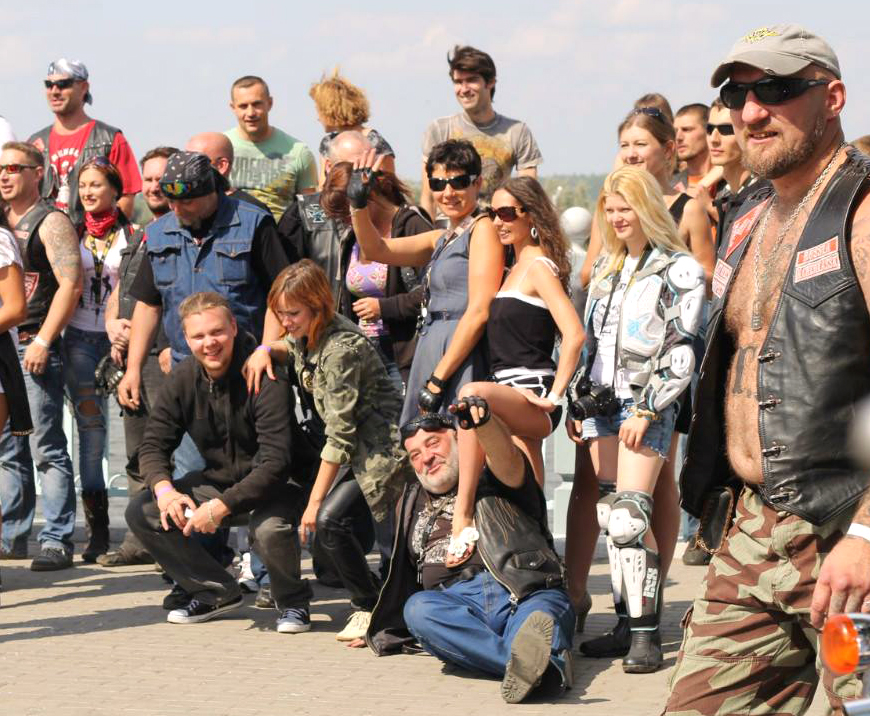
According to his attorney and son, Russia’s scrutiny of Mikhail Kavun ratcheted up in the early 2010s, when he started visiting Ukraine more regularly in the summertime on cross-country motorcycle trips. Mikhail Kavun — a fan of the FX show “Sons of Anarchy” — continued his travels on his Honda Gold Wing even after Russia annexed Crimea in 2014, all while publicly voicing opposition to Moscow’s move and showing support for Kremlin critics such as Alexei Navalny.
On one particularly memorable motorcycle trip, Mikhail Kavun was stopped at a Russia-Ukraine border checkpoint and asked a series of confusing questions by Russian officers, according to his son. It was then that he began suspecting he was being trailed by the Kremlin’s intelligence services.
Around that same time, unidentified men visited the motorcycle service center in Astrakhan that Mikhail Kavun frequented, asking the employees there whether they knew or had seen him, his son said. These men, who Mikhail Kavun believed to be Russian intelligence officers, also took several photos of his motorcycle on the streets of Astrakhan.
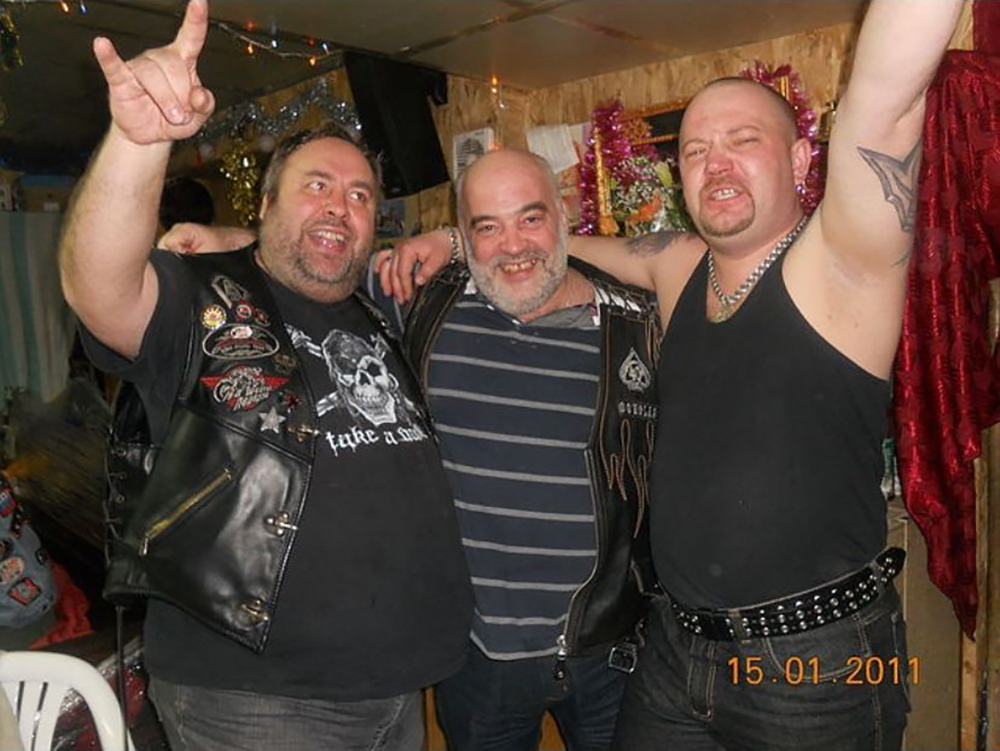
Before Mikhail Kavun’s detention in April, Russian authorities arrested him three times in March and leveled three civil charges against him: two accusations of disobeying police officers in Moscow and one accusation of using obscene language in Zelenograd. Zakhvatov, Kavun’s attorney, denied all of the charges and said the successive arrests — which represent a common type of political repression in Russia — were likely made in preparation for the current criminal case against Mikhail Kavun.
Zakhvatov and Aleksei also deny Russia’s latest charges that Mikhail Kavun offered any sort of financial support to Right Sector — a ludicrous accusation, they argue, considering his Jewish heritage and the nationalist group’s ideology. Furthermore, they maintain that Mikhail Kavun never was a member of or had any contact with anyone from the organization. That includes Igor Nikolaevich Pirozhok, an alleged Ukrainian nationalist and neo-Nazi who Russia accused Mikhail Kavun of giving money to. “The problem is that Russian law enforcement … always in political case[s] are working hand-in-hand with propaganda media,” Zakhvatov said.
According to Zakhvatov, another step in Mikhail Kavun’s case is scheduled to take place in mid-June, when the state’s investigator will argue that the court prolong his detention. But Zakhvatov has filed a complaint to transfer him from detention to house arrest, which the court is set to hear on May 16. “We always hope that maybe some conscience will appear to all these people,” Zakhvatov said of the hearing next week before Russian authorities.
Mikhail Kavun, who now faces up to eight years in prison, expressed regret to his family “that I exposed myself so naively, and that I exposed you to danger as well,” according to a letter dated April 24 that he wrote from detention. In that same message, he also shared a bleak but defiant prediction about his fate: “There are long years of jail ahead, and there is probably no way back to the normal life. … I’m not getting used to that thought yet. … Overall, I don’t regret anything.”
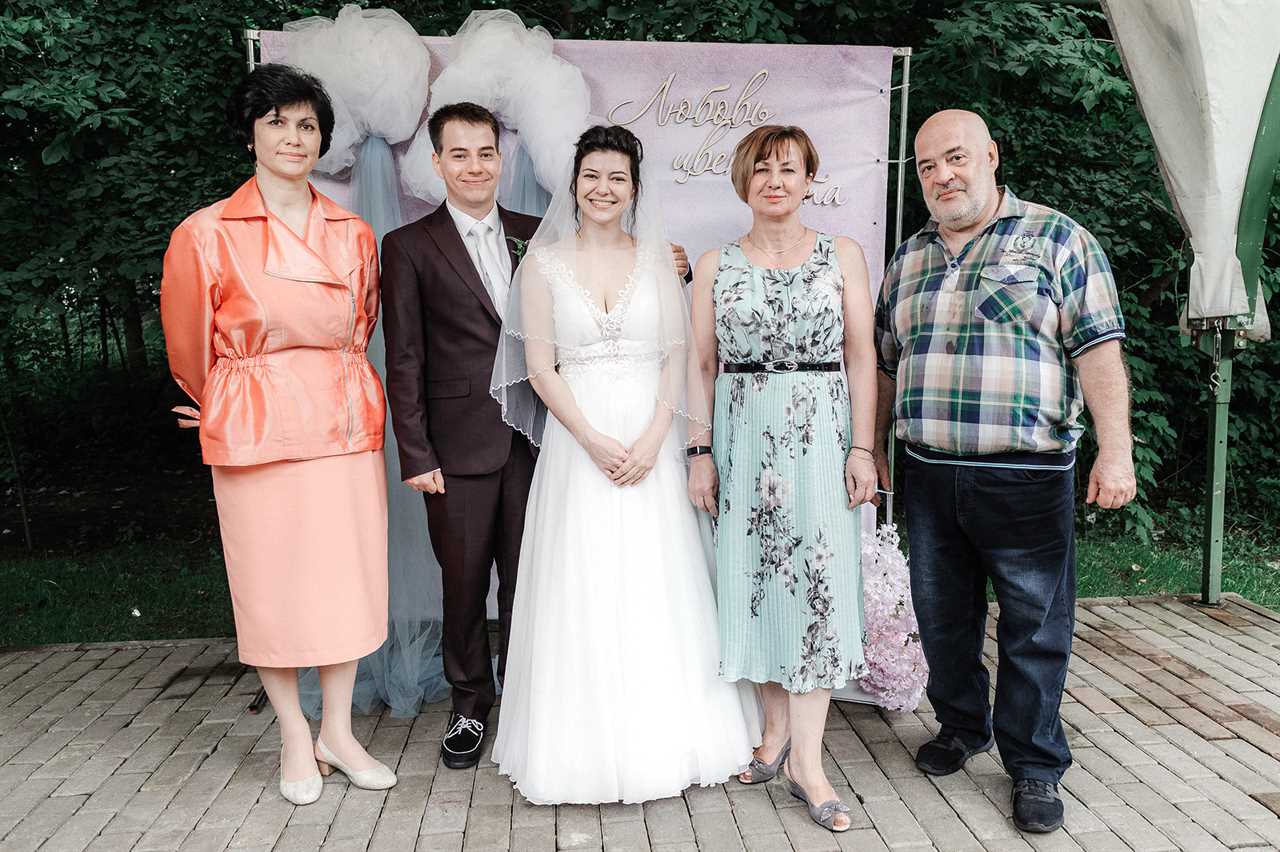
Aleksei — who left Russia with his wife in 2020 and is now a student at McGill University in Montreal, where he is working toward a doctorate in organic chemistry — said he is not worried for his own safety as he lobbies for his father’s freedom.
But Aleksei does fear for his family back in Russia: On the same morning that his father was taken into custody last month, Russia’s security forces simultaneously raided his mother’s Moscow apartment — seizing debit cards, mobile phones and laptops as Aleksei’s 6-year-old niece looked on.
In addition to concerns that other members of his family might be detained, Aleksei also is afraid that his father — who has Type 2 diabetes and writes that he has not been receiving his prescribed medications in jail — could be tortured by Russian officers seeking to extract information about Right Sector.
Aleksei has “two best-case scenarios” for his father’s case: The first is that the Ukrainian government will trade his father for a Russian soldier imprisoned in Ukraine. The second is that his father’s punishment will be softened to a hefty fine. Exoneration in a Russian court, Aleksei said, is all but impossible: “If they start this case and make it on propaganda purposes, my father will be found guilty. I know that.”
Aleksei acknowledges that his father’s arrest may seem small when stacked up against the manifold atrocities of Putin’s war. “Right now, when people are dying, Ukrainian children are dying, it could seem — and it is, probably — not that important compared to those tragedies,” he said.
Even so, Aleksei views the pending criminal case as impossible to untangle from the bloody conflict now consuming his father’s homeland. “It’s all connected to the war,” he said, “and all connected to Ukraine.”
Aleksei’s father agrees. “If everything is over here … I’ll realize that I’ve sacrificed my life [for the] sake of Ukraine,” Mikhail Kavun wrote in a letter to his son dated April 27. “What could possibly be more wonderful?”
Daniel Lippman contributed to this report.
----------------------------------------
By: Quint Forgey
Title: The cruel irony of being arrested in Putin’s Russia
Sourced From: www.politico.com/news/2022/05/12/russia-nazis-mikhail-kavun-00031165
Published Date: Thu, 12 May 2022 11:49:04 EST
Did you miss our previous article...
https://consumernewsnetwork.com/politics-us/where-was-the-strategy-for-getting-people-ready-to-start-taking-the-vaccine






